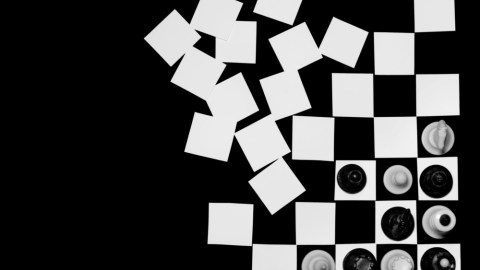Emergent Griefing

I enjoy “griefing“, which is when people use aspects of a system that make that system less fun for others. It’s a term normally used in multiplayer video games. As gamification spreads game-like interactions to everyday experiences this also spreads the anti-social behaviors of games.
My first experience with gamification was the Army. The Army wouldn’t call it that, but it uses game elements (badges, rules, opponents, win conditions) to motivate troop behavior. Initially I was ill-suited to the rigid command structure of the military but as I learned the complex system of Army life I found ways to play with the rules.
The stereo-typical Army sergeant yells as the stereo-typical Army private to “Drop and give me twenty!” after some minor infraction. The Army does not call this punishment. The Army calls this “corrective action”. I found myself receiving this corrective action often. After being late to formation I completed my twenty pushups and instead of getting up I remained in the pushup position and said, “Request permission to do another twenty.” I can only assume my sergeant was beaming with pride as he thought I had so internalized this “corrective action” that I was inflicting more upon myself as I had seen the error of my ways. He granted me permission.
After completing another twenty I remained in the pushup position and said, “Request permission to do another ten.” There was a snicker in the ranks and my sergeant suspiciously agreed. After doing ten more pushups I asked for another ten and the snickers turned to chuckles. My sergeant was a bit flummoxed. He was losing control and he did not like it. He denied my request.
So I shifted tactics, “Five more for country?”. No American soldier could possibly object to a request to do pushups for one’s country! He agreed. “Four more for the MP Corps?” Yes. “Three more for 3rd Battalion?” Yes. “Two more for God?” and finally “One for my Mother?” I had mocked the idea of corrective action and totally undermined his authority and got some good laughs (and quite a work out).This was the beginning of a social exploit I called “Over-Enthusiastic Soldier”. The Army is a system of rules and ranks and cultural practices and Over-Enthusiastic Soldier worked to exploit all of these against each other. It was griefing in real life.
The best of true griefing is Team Roomba. They are the New York Yankees of griefing, creating an almost artful exploration of frustration.
Combining glitches and the creative properties of “bad game play” creates a cultural violation that ruins the game for most players, but is immensely satisfying to the griefer. When a product introduces gamification (badges, points, virtual currency, leaderboards, prizes, etc.) they are adding a layer of artificial incentives to get the users to take actions that are good for the product, but aren’t rewarding for the user. The more game-like the system becomes the easier it is to grief.
No one is griefing Facebook better than Facebook. Feeds are drowned in linkbait articles from Buzzfeed and Upworthy because users are rewarded with likes for pictures of cute puppies. And Facebook has destroyed the meaning of friendship by encouraging “friending” more and more people. What was once a meaningful social space is now a flood of useless posts about dogs, babies, politics, and Kickstarters. Facebook utilized the social and game-like elements of the system to make Facebook less fun.
As our world becomes both gamified and socially integrated we’re adding the culture of multi-player online games to our products. The mainstreaming of these processes has graduated griefing from a subculture of online games to an emergent property of complex systems.




